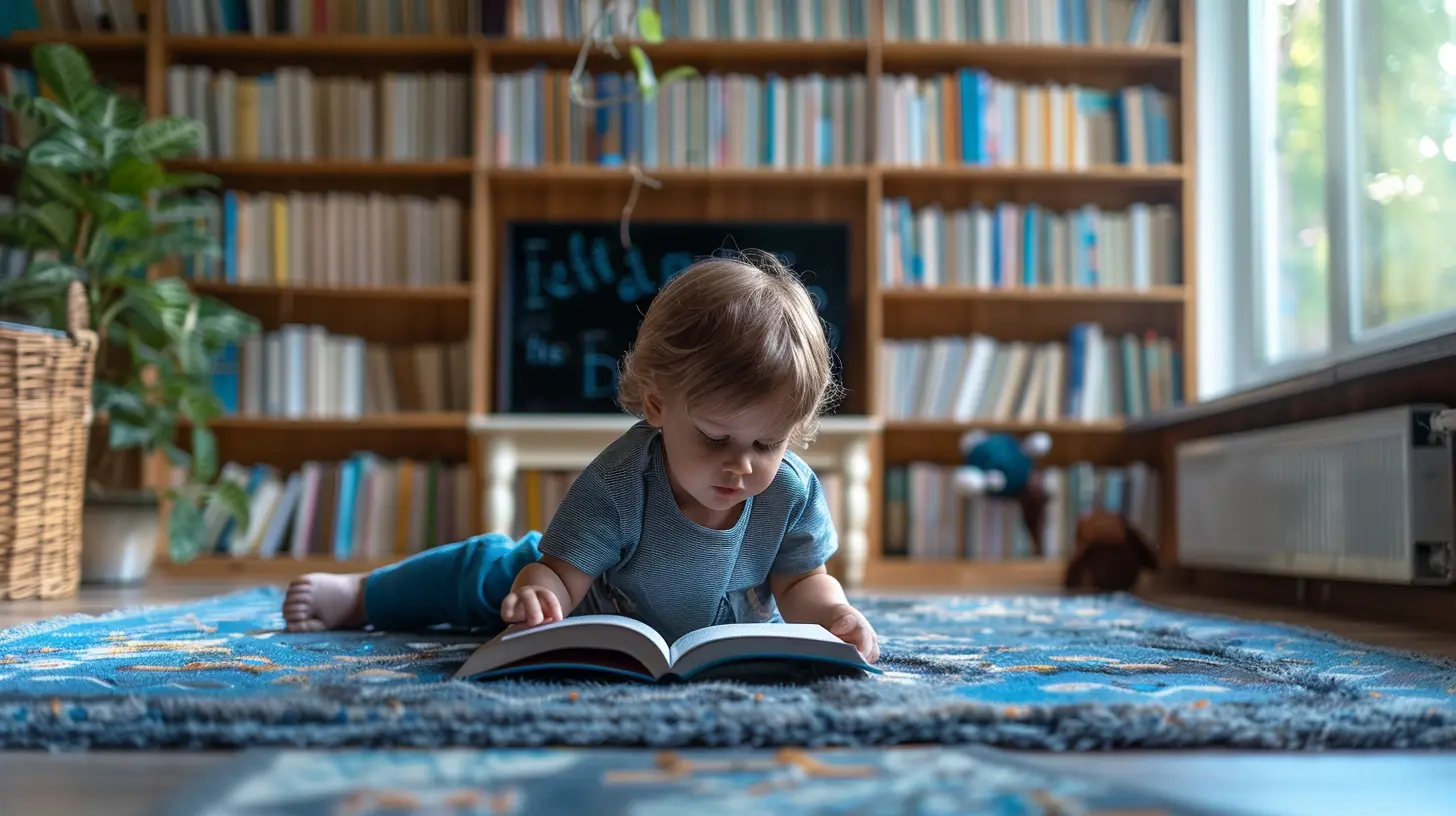The Impact of Books and Reading on Cognitive Development
7 June 2025
Alright, let’s get real—reading is basically a superpower. No, you won’t start flying or shooting laser beams out of your eyes after finishing a novel (wouldn’t that be cool, though?), but your brain? Oh, your brain will level up like it just found a cheat code.
If you’ve ever wondered why bookworms seem to have that extra spark, or why teachers keep nagging about reading, you’re in the right place. Buckle up, because we’re diving deep into how books and reading mess—uh, I mean, enhance—your cognitive development.

What Even Is Cognitive Development?
Before we go all-in on books, let's clear up what we mean by "cognitive development." Fancy term, right? Basically, it’s how your brain grows and improves its ability to think, learn, reason, remember, and problem-solve.Think of your brain like a muscle. The more you challenge it, the stronger it gets. And guess what? Reading is like an intense, brain-lifting workout. Let’s break down why.

Boosting Brain Power, One Page at a Time
1. Reading Supercharges Brain Connectivity
Ever heard of brain plasticity? No, it’s not some arts-and-crafts hack—it’s your brain’s ability to reorganize itself. When you read, different areas of your brain light up like a Christmas tree, firing neurons left and right.Studies show that reading fiction, for example, enhances connectivity in the left temporal cortex, the part responsible for language processing. So, when you’re lost in an intense thriller or swooning over a romance novel, your brain is out here rewiring itself for the better.
2. Hello, Focus and Attention Span!
Ever scrolled through TikTok for an hour and realized you can’t even pay attention to a three-minute YouTube video anymore? Yeah, social media is out here wrecking attention spans. But reading? It’s the cure.Books force you to focus, to follow a storyline, to keep up with details. Over time, this trains your brain to concentrate for longer periods—a skill that’s pretty handy in school, work, and, well, life.
So, the next time someone calls you out for binge-reading a novel, just tell them you’re "training your cognitive endurance." Sounds legit, right?

The Memory Game: Why Books Make You Sharper
Reading is like a memory boot camp. Every time you pick up a book, your brain is working overtime to remember names, places, plot twists, and character backstories.And guess what? That memory workout strengthens your brain’s ability to recall information, which is crucial for everything from passing exams to remembering where you left your car keys.
Ever wonder why older folks who read regularly tend to have sharper minds? That’s because reading keeps the brain active and reduces cognitive decline. It’s like a secret weapon against forgetfulness.

Critical Thinking: The Superpower Nobody Talks About
Books don’t just fill your brain with random facts; they shape the way you think. Ever questioned a twist ending? Debated with yourself about a character's decisions? That’s your critical thinking in action.When you read, you’re constantly analyzing, predicting outcomes, and making connections. This spills over into real life, making you better at problem-solving and decision-making.
Think about it—would you rather trust someone who blindly believes whatever they hear, or someone who questions, analyzes, and digs deeper before forming an opinion? Exactly.
Emotional Intelligence: Books Help You Read People, Too
Ever cried over fictional characters? (No shame, we’ve all been there.) That’s because books don’t just build cognitive skills; they teach empathy.Reading about different perspectives—whether it’s a medieval knight, a struggling single mom, or a time-traveling scientist—helps you step into someone else’s shoes. And the more you do that, the better you get at understanding emotions in real life.
So yes, reading makes you smarter, but it also makes you a better human. Win-win.
Language Skills: Because Words Matter
This one's obvious, but it deserves a shoutout. Reading expands your vocabulary, improves grammar, and helps with speech.Ever listened to someone who reads a lot? Their words just flow—no awkward pauses, no struggling to find the right phrase. That’s the magic of books.
If you want to sound like an absolute genius at your next job interview, start reading more. Trust me, it works.
Creativity: Reading Unlocks Your Imagination
Books don’t just engage your brain—they transport you to entirely new worlds. When you read, you paint mental pictures, imagine scenes, and bring stories to life in your head.That constant engagement boosts creativity, which in turn helps with problem-solving, innovation, and thinking outside the box. So, if you want to be the next big inventor, artist, or entrepreneur? Read more.
The Perfect Brain Food: Fiction vs. Non-Fiction
Now, you might be wondering—does it matter what you read? The short answer? Not really.- Fiction improves empathy, creativity, and emotional intelligence. It challenges your imagination and helps you understand the human experience.
- Non-fiction strengthens factual knowledge, critical thinking, and reasoning skills. It’s like feeding your brain real-world wisdom.
Bottom line? A balanced reading diet is best. Mix it up! One day you’re diving into fantasy, the next you’re devouring a self-improvement book. Keep your brain guessing.
But Wait—What About Audiobooks?
Let’s talk about the elephant in the room: Does listening to audiobooks count as reading?Short answer? Yes. Studies show that listening to a book activates the same areas of the brain as reading text. So, while physically reading might edge out audiobooks in terms of focus and retention, both formats are gold for cognitive development.
Moral of the story? Whether you're flipping pages or hitting play, you're still feeding your brain the good stuff.
Final Thoughts: Read. More. Books.
If you’ve made it this far (congrats on that epic attention span, by the way), here’s the takeaway:Reading isn’t just a hobby—it’s a brain-boosting, life-enhancing, intelligence-sharpening powerhouse. It improves memory, critical thinking, emotional intelligence, and creativity. It keeps your mind young, your vocabulary sharp, and your focus strong.
So, pick up that book, turn off Netflix for a bit, and let your brain soak up the magic of words. Your future self will thank you.
all images in this post were generated using AI tools
Category:
Cognitive DevelopmentAuthor:

Eliana Burton
Discussion
rate this article
2 comments
Kestrel McCracken
Reading fosters critical thinking and growth.
June 15, 2025 at 4:11 AM

Eliana Burton
Thank you for your insightful comment! I completely agree—reading not only enhances critical thinking skills but also promotes personal growth through diverse perspectives and ideas.
Sylvan Love
Books are like mental gym memberships! They pump up our brainpower, flex our creativity, and help us lift the weights of critical thinking. Plus, who wouldn’t want to take their imagination on a wild adventure? Happy reading, brainiacs! 📚✨
June 12, 2025 at 2:17 AM

Eliana Burton
Absolutely! Books not only enhance our cognitive abilities but also fuel creativity and imagination—essential for personal growth. Happy reading! 📚✨


